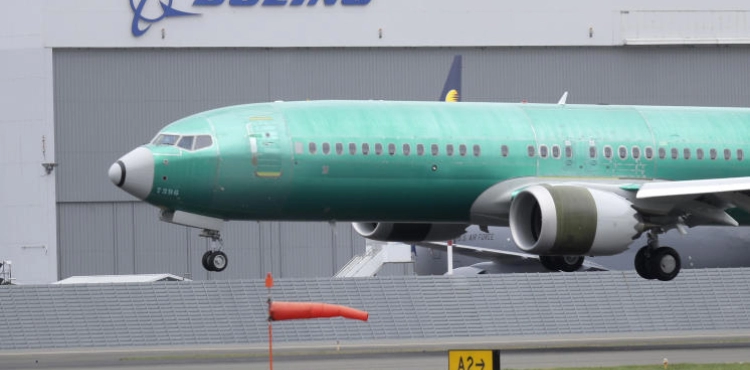Boeing said on Thursday that 50 heavily used 737 NGs were prevented from flying after cracks were detected in their bodies, in a fresh blow to the US Aerospace Group after two disasters. Two planes killed 346 people.
Australia´s Qantas has joined other airlines that have taken this model out of service and said it would make an urgent detection of 32 more, but assured passengers it was not to worry.
The Qantas announcement came after South Korean authorities announced in early October that they had banned nine such aircraft, including five Korean Airplanes.
Boeing had previously reported model problems in the part connecting the wing to the chassis. This prompted US authorities to request immediate detection of heavily used aircraft.
After the Qantas announcement, a Boeing spokesman told AFP in Sydney that cracks had been detected in less than 5 percent of a total of 1,000 planes, adding that planes with cracks had been prevented from flying pending repair.
The spokesman did not give the exact number of planes, noting that the proportion of five percent of a thousand aircraft equivalent to 50 aircraft.
Boeing and Quantas assured passengers there was no need to worry.
"We will never operate any aircraft unless it is completely safe," said Chris Snook, head of the Qantas engineering department.
But crack monitoring reinforced fears that the 737NG´s problem may have been underestimated.
The US Federal Aviation Authority initially ordered an immediate inspection of 737 NGs, which made more than 30,000 flights.
But the Australian airline said it had detected cracks on planes that had fewer flights, one of which did not exceed 27,000.
"This aircraft has been decommissioned to repair it," Quantas said in a statement, adding that it had speeded up the detection of another 32 737 NGs, adding that it would be completed by Friday.
The Australian company said it usually uses the model for domestic flights, mainly to connect major cities and short trips to New Zealand.
The Australian aviation industry has reacted more like "eliminating a potential safety problem in its infancy by taking proactive action now," an Australian aviation authority spokesman said.
The spokesman said that the "Virgin" Australia has made a disclosure on its fleet of aircraft "Boeing 737 NG" of 17 aircraft, and did not detect any problems.
But Quantas has been asked to stop using its entire 737 fleet pending completion of the disclosure.
"These planes should remain out of service pending completion of the urgent disclosure," said Steve Barvinas, the union´s representative in a statement.
Quantas called the calls for a 737 fleet to be "completely irresponsible".
"The presence of cracks does not immediately endanger the aircraft," Snook said.
Stephen Vankhauser, an aviation expert at Swinburne University of Technology, said the pieces were designed "to withstand some deterioration and damage."
"The detection period is aimed at ensuring that the cracks do not increase and (avoid) reaching a dangerous size, which then greatly compromises the rigidity of the structure," he said.
A Boeing spokesman said the company "regretted" the impact of the case on its customers and was "working around the clock" to fix the problem.
"Boeing is working hard with its customers, whose fleet includes aircraft with cracks, to prepare a repair plan, and to provide parts and technical support when necessary," the spokesman said in a statement.
The NG is an earlier version of the 737 Max, which was prevented from flying in mid-March after two crashes in Indonesia and Ethiopia.
Boeing is still restoring confidence in its aircraft after last year´s crashes were linked to an automated system that prevented the crash.
Boeing chief executive Dennis Muelenberg on Wednesday faced a sharp interrogation in the US House of Representatives on Wednesday, in which deputies attacked the company´s "equivocation" in dealing with the two disasters.












